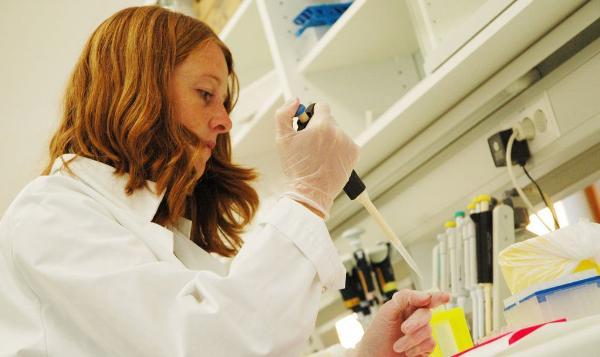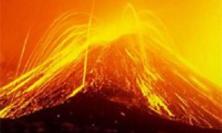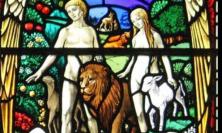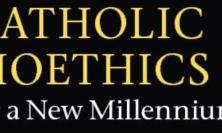Vatican astronomer, Guy Consolmagno SJ, looks at attitudes to faith among professional scientists and technicians, and finds them much more positive than he expected.
In the often rancorous debates about science and religion, an
interesting fact is almost always overlooked: an awful lot of scientists and
engineers are also church-goers.
I first discovered this when, after fifteen years working as a
scientist, I joined the Jesuits. I had earned degrees at MIT and Arizona,
worked at the Harvard College Observatory and then back at MIT again. I'd made
my living off NASA grant money at first, and then by teaching physics at a
small college in Pennsylvania noted for its engineering program. I had a raft
of published papers and a reputation, for better or worse, as a scientist
within my own field of planetary astronomy; nobody cared about my private life.
But entering the Jesuits made the religious side of my life public. I expected
to run into some opposition, or at least raised eyebrows, from my scientific
colleagues. Instead, much to my surprise, the reaction I got over and over was,
"That's wonderful! I've always heard such great things about the Jesuits. Now
let me tell you about the church I go to..."
From the comments of my colleagues and friends, I began to realize that
churchgoing percentage among scientists and engineers is not much different
from the proportion of churchgoers you'd find in whatever community the
scientists themselves came from. Belonging to a church is quite common in
Chicago; less so in London.
Then, a few years ago, I took time out from my own work as an
astronomer at the Vatican Observatory to do a Jesuit program called
Tertianship. It's a sort of sabbatical we Jesuits take after a dozen years or
so in the Society to recharge our spiritual batteries, usually as a prelude to
taking final vows. One part of that experience is to spend time someplace
different from our normal workplace, doing a different kind of Jesuit work than
what we'd become used to. My assignment was to go to the Jesuit school in
California's Silicon Valley, Santa Clara University. Instead of doing science,
I would be talking to professional scientists and engineers - techies - about their faith lives.
It was a fascinating experience. For six weeks I spoke to scientists at
the NASA Ames Research Center and at Stanford University; engineers at
Hewlett-Packard and Apple Computer; self-employed researchers; consultants at
small high-tech startups. They were Catholics and Orthodox, Protestants and
Jews, agnostics and atheists. But they were all techies. And they were all
willing to talk to me because, like them, I am a techie, too.
But as I chatted with my various techie friends, it became obvious to
me that the techie mindset of a scientist or engineer means that they
experience religion in ways that are distinctly different from the philosophers
and theologians I'd meet in my Jesuit communities.
Indeed, the experience of a techie in a parish can often be daunting.
Parishes are organized around families; but too often techies are the guys who
could never get a date, and who continue as adults to live alone.
Most of them told me that they are baffled by liturgical practices they
see in their parishes. The language of spiritual affectivity they often hear
from the pulpit sounds like meaningless mumbo-jumbo to a person more used to
reading a technical manual - or, worse, more used to figuring things out on
their own. One techie described the homilies at his church as mere "white
noise;" another commented to me, "why should I listen to some guy in a dress up
on the altar who doesn't even know how to make the microphone work?" To them,
church leaders and ministers rank at about the same low level of esteem as the
"suits" where they work, the management types who are clueless about what
actually goes on in the lab.
On the other hand, it was clear that these techies - even the non-believers
- had all pondered deeply about religious issues. There wasn't a one of them
who gave me a blank look when I asked them my questions about belief and God;
it's something they all had thought seriously about, themselves.
And it was fun to hear the usual religious issues and theological
principles re-expressed by them using analogies to computer systems, or in the
language of the physics lab. We techies have our own rough-and-ready way of
ferreting truth out of nature, ways that we have confidence in because we've
seen that they work: these tricks can provide us with insights into the
universe, and show us how to make wonderful high-tech toys.
But these same ways of thinking can also lead to some dangerous
philosophical pitfalls. Our laws of science only apply over a limited range;
for example, at the scales of the very small or the very large, for atoms or
for galaxy clusters, classical physics no longer works and we have to go to
quantum physics or general relativity. The sorts of questions about origins and
meaning, the religious questions, occur exactly at those extremes where we can
no longer be certain our physical laws are valid. I heard a lot of truly
questionable philosophy being accepted as simple "common sense" by my friends.
The physical universe is simpler than the philosophical universe in a
number of ways. For one thing, it plays fair: unlike certain religious
hucksters, nature doesn't deliberately try to trick you. Nor is it subject to
the vagaries and prejudices of the human being studying it, or the human
beliefs being studied. After all, you're taught the same physics, often out of
the same textbooks, in Mumbai as in Manchester; but by contrast, the
proliferation of different philosophies and religions around the globe, and in our
own home towns, each reflecting a different set of human conditions, human
histories and hopes and fears, is a scandal that many techies have a hard time
coping with.
And then I got an invitation to write a book about techies and
religion. Those interviews had shaped the core of my thinking about techies in
church; now they made up the central chapters of my book. The stories of my
techie friends I reported just as I had recorded them at the time, changing
only the names and details of my subjects to protect their privacy. I would
hardly insist that many of the ideas they expressed are things I believe to be
true; but what is true, I maintain, is that these ideas I'm reporting in these
stories are an accurate reflection of what a lot of people out there are
thinking. It's good to know what we're up against.
Here's one of those stories:
On a Tuesday morning in late April, I sign out a Jesuit community car
and head up Route 101 into the suburban neighborhood of South San Francisco.
Driving down a street of cookie-cutter houses, in front of one I see a
Volkswagen microbus up on blocks, slowly rusting in the sea breeze. This is the
place.
Waiting at the house is Jules, a Caltech graduate who now makes his
living as a professional photographer. He
combines an artistic talent with his techie abilities in the darkroom to
produce some astonishingly beautiful images of nature. They're all around us as
we sip tea in his living room. As I settle in, he offers me a choice from
twenty different kinds of teas, all kept loose in little glass jars in his
kitchen cabinet. We're also surrounded by a thousand vinyl record albums,
dozens of paintings, and a couple of original cartoons signed by the artists.
Seeing him sitting there, dressed in a wide Hawaiian shirt with a peace symbol
on a cord peeking out from behind his unkempt beard, I am almost transported
back in time . . . except the beard is gray now, and the shirt a bit
wider than it would have been thirty-five years ago.
Like me, Jules sees himself as a "techie-plus," someone who's part of
that community yet still able to step out of it and look it over from the
outside.
Jules suggests to me that as many as 80 percent of techies are
religious but that this number is highly uncertain because the subject matter
is taboo among most techies; it's not something we talk about in our daily
working lives. The experience of most techies is that discussion about religion
is acrimonious and pointless. It's my clerical collar (worn or not) that gives
them permission to talk to me, even if it also colors what they are willing to
tell me.
When I describe to him my idea that the typical techie is an engineer
looking for the rules of the universe, he laughs. "Engineers are strong on
content but weak on process," he reminds me. "They don't see that the process
of how one arrives at a solution can be as important as the solution itself."
I describe how David, an astronomer, had worried that there were too
many religions: "They can't all be right; so they must all be wrong." Jules
laughs and asks, "Why can't they?" But then, in true techie fashion, he and I
start to outline and enumerate the different ways that we see techies approach
the "many religions" question:
1. They can't all be true, so they must all be false. (David's answer.)
2. They are all true, just different descriptions of the same truth.
All churches must be equally true, because they all essentially teach the same
thing. This is especially obvious if you view religion as essentially a source
of ethical rules for human behavior rather than theological truths about God
and make the techie assumption that content equals rules; then, if all your
churches come up with the same rules, they must all be based on the same
content, and thus they must be ultimately all be the same. (I think I saw this
in George, raised Catholic but now a member of his wife's church, the
Seventh-day Adventists.)
3. Different religions are like different computer operating systems
adapted to different computer platforms; which one is right for you depends on
how you are "wired." In other words, the choice of which religion you should
follow depends on your personal history, your internal needs, your genetics, or
the general question of what you're trying to get out of that religion. This is
not quite the same as answer number 2, because it suggests that for a given
person, one religion might be better than the others; but for different people
with different histories and different needs, different religions might be more
appropriate. And like computer systems, some religions have more features than
others, but at the cost of a higher overhead and the greater possibility of
bugs. Again, the unspoken assumption is that what is important in the
differences between religions has nothing to do with how close their
theological descriptions of God correspond to reality, either because those
differences don't exist or because they are impossible for us to judge,
differences too subtle to be detected by us, lost in the "noise" of our human
limitations, personal history, genetics, and so on. (This sounds like Alan and
Beth, who were "shopping" for a church in which to raise their children.)
4. Different religions are different approximations to the truth, but
some approximations converge on the truth faster than others (as described to
me by Ian, an Orthodox engineer). This is different from numbers 2 and 3
because it suggests that there is one religion, the one that converges the
fastest, that really is "better" than the others, at least in a functional
sense, if not necessarily "truer" in the long run.
5. Different religions are like different levels of physics. We know
that Aristotelian physics, though a perfect example of "common sense," is
actually less accurate (and much less useful or powerful) than Newtonian
physics. But likewise, at a certain point, Newtonian physics fails, and we can
see that it is less accurate than quantum physics. Only the last comes closest
to the truth. For many people, and for much of the time, the less true versions
of religion (which may be easier to grasp) can be adequate, just as most human
beings happily live in the commonsense world of Aristotle without even
realizing it, and most engineers can do most of their work using merely
Newtonian physics. But at the end of the day, and especially evident in the
hardest and most extreme cases, those other versions of physics will fail to
give an accurate description of the truth.
Note that of the five, this last model is ultimately the only one that
suggests that one religion really does more closely match the truth than any of
the others. We can argue about which one!
Guy Consolmagno SJ is an American Jesuit
working at the Vatican Observatory in Castel Gandolfo, Italy, where he conducts
research on asteroids and comets, and serves as curator of the Vatican's
collection of meteorites. He is the author of several popular books on
astronomy and religion. This article is
adapted from his most recent book God's Mechanics: How Scientists and Engineers
Make Sense of Religion (Jossey-Bass, 2008); copyright and all rights reserved.
![]() The Vatican Observatory
The Vatican Observatory
![]() God's Mechanics: How Scientists and Engineers
God's Mechanics: How Scientists and Engineers
Make Sense of Religion by Guy Consolmagno SJ






